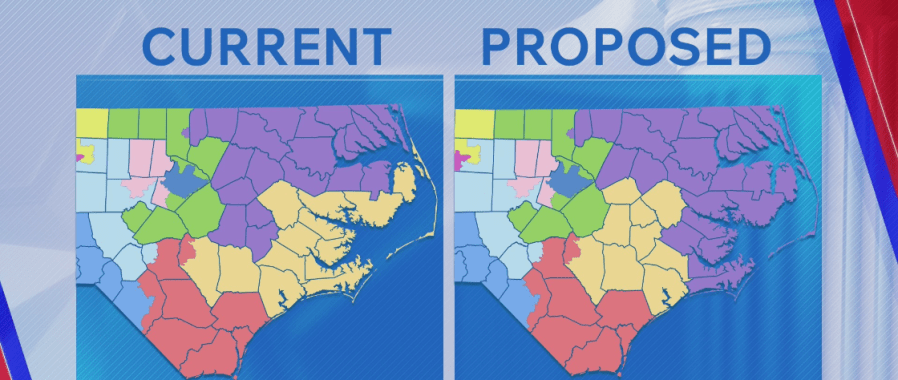The North Carolina Elections Committee has voted in favor of a Republican-proposed redistricting map, which is set to be reviewed by the state Senate later today. This development marks a significant step in a process that could reshape the political landscape in North Carolina, particularly with the Republican majority in both the state House of Representatives and the Senate suggesting a high likelihood of approval.
The proposed map, announced by North Carolina Senate Leader Phil Berger and House Speaker Destin Hall, aims to create an additional Republican congressional seat. Hall emphasized the importance of this initiative, stating, “President Trump earned a clear mandate from the voters of North Carolina and the rest of the country, and we intend to defend it by drawing an additional Republican congressional seat.”
This proposed redistricting plan specifically alters North Carolina’s 1st congressional district, currently represented by Democrat Don Davis. The changes would remove the east-central counties of Wayne, Wilson, Greene, and Lenoir, replacing them with several counties along the eastern coast, including Carteret and Craven. If the General Assembly approves the map, it will bypass the governor’s veto power.
As it stands, North Carolina’s congressional districts include 14 seats, with 10 currently held by Republicans and 4 by Democrats. Prior to this year’s redistricting, the districts were evenly split between the two parties. However, a previous redrawing in 2023 facilitated the Republican Party’s acquisition of three additional U.S. House seats ahead of the 2024 elections.
The 1st congressional district, currently viewed as the only competitive district in North Carolina, saw Davis re-elected in 2024 by a narrow margin of 1.5%. With the changes proposed, the dynamics in this district could significantly shift, potentially impacting future elections.
The implications of this redistricting are substantial, as it reflects the ongoing political strategies employed by both parties in North Carolina. The outcome of the Senate vote later today will be closely monitored, as it could set the stage for the political climate heading into the upcoming election cycle.







